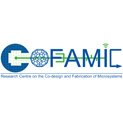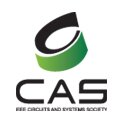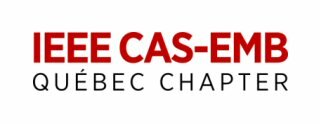In The Era of AI, How Does A Course On Analog Filter Design Fit In
by Prof. Gordon W. Roberts, McGill University, Montreal, Québec, Canada
Deep learning: our digital assistants cannot withstand any further to be idiot savants
by Prof. Yves Leduc, University of Nice Sophia-Antipolis, France
Flexible Hybrid and Printed Electronics: State-of-the-Art, Applications and Challenges
by Prof. Joseph S. Chang, Nanyan Technological University, Singapore
In The Era of AI, How Does A Course On Analog Filter Design Fit In
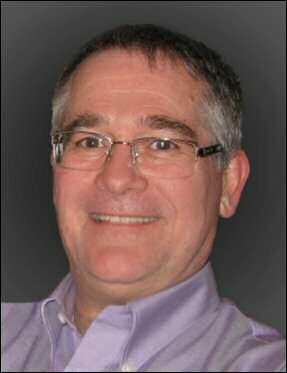 Gordon W. Roberts
Gordon W. Roberts
McGill University, Canada
Monday, june 25
11:00 am – 12:00 noon
— Abstract — The methods used today to design analog filter circuits have been with us for almost a century, beginning with the early works of Foster (USA), Norton (USA), Cauer (Germany) and Darlington (USA). While most of the accolades bestowed upon this work lie with the result of a successful filter realization, the genius of these early researchers was the design process itself. Any student studying filter design for the first time is elated with how easy it is to design analog filters and achieve useful results. Unfortunately, the same cannot be said for the design of other analog components, as issues of stability and other operational issues seem to get in the way. Many hours are spent searching for a useful result, usually in an ad hoc way. The genesis of the approach first advocated by the early pioneers was to begin with a known transfer function and synthesize the circuit realization using a sequence of mathematical steps. Today, this approach is well ingrained into the design of digital circuits; albeit with Boolean functions instead of transfer functions. However, somehow it seems to have been dropped from the analog design process, or at best, used on only a few analog circuit types. In this talk, it will be argued that the analog filter design approach should be a core topic of study for an electrical engineer. Not only for learning how to design analog filters but, more importantly, to understand how an analog design should be performed. The talk will demonstrate the concept on the design of operational amplifiers, sigma-delta modulators, delay-lock loops, and phase-lock loops.
— Biography — Gordon W. Roberts received the B.A.Sc. degree from the University of Waterloo, Canada, in 1983 and the M.A.Sc. and Ph.D. degrees from the University of Toronto, Canada, in 1986 and 1989, respectively, all in electrical engineering. At McGill University, he is a full professor and holds the James McGill Chair in Electrical and Computer Engineering. He has co-written seven textbooks related to analog IC design and mixed-signal test. He has published numerous papers in scientific journals and conferences, and he has contributed chapters to various industrially focused textbooks. Dr. Roberts has held many administration roles within various conference organizations, such as the International Test Conference, Custom Integrated Circuit Conference, Design Automation Conference and the International Symposium on Circuits and Systems. He was the 2009 and 2013 General Chair of the International Test Conference. Dr. Roberts is the co-founder of DFT Microsystems Inc. A company specializing in high-speed timing measurements. Dr. Roberts is named on 14 patents, with four pending, and has received numerous department, faculty and university awards for teaching test and electronics to undergraduates, and received several IEEE awards for his work on mixed-signal testing. Dr. Roberts is a Fellow of the IEEE.
Deep learning: our digital assistants cannot withstand any further to be idiot savants
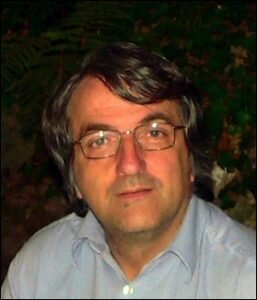 Yves Leduc
Yves Leduc
University of Nice Sophia-Antipolis, France
Tuesday, june 26
11:00 am – 12:00 noon
— Abstract — Flying like a bird, visiting the moon, traveling in time, using teleportation…, human beings are looking for centuries to a long list of improbable goals. Some dreams are indeed impossible but a few of them became already reality. We are now on the verge of a new revolution. System expert, machine learning and recently deep learning are preparing the advent of the artificial intelligence which will be, no doubt, the beginning of a new era. Deep learning is the entry point of this new quest. Are we really prepared? Hardware and software are progressing but we should confess that they are still in infancy. It is obvious that we are far from the incredible complexity of life, the efficient coding of the DNA. Where are the promised 3D IC integration, the energy efficiency breakthrough, the thermal dissipation performances we are desperately searching for? We made fast computers, they are stupid. We plan to conceive smart systems, the physics predict that they will be slow…
— Biography — Yves Leduc received his PhD in Electronic Engineering from the University of Louvain in Louvain-la-Neuve (Belgium) and his HDR from the University of Nice Sophia-Antipolis. He joined TI France in 1980. In 1993, he created the mixed-signal design team of TI France and was elected TI Fellow in 1998. Yves is now at the Polytech Lab of the University of Nice Sophia-Antipolis (France), where he held the TI Chair. His research field is about mixed signal design and system modeling.
Flexible Hybrid and Printed Electronics: State-of-the-Art, Applications and Challenges
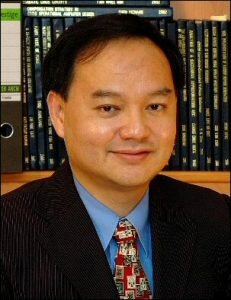 Joseph S. Chang
Joseph S. Chang
Nanyan Technological University, Singapore
Wednesday, june 27
11:00 am – 12:00 noon
— Abstract — Flexible Hybrid Electronics (FHE) and Printed Electronics (PE) offer the unique attribute of mechanical flexibility as its substrate is flexible and bendable, and in some cases, conformable and stretchable. FHE embodies both traditional CMOS ICs/SoCs and printed electronic elements while PE embodies only printed elements, including printed sensors, passives (capacitors, resistors, inductors, antennae, etc.) and actives, primarily thin-film-transistors. In this talk, we will review state-of-the-art HFE and PE, and some of their applications that are not readily realized in traditional electronics based on rigid printed circuit boards. HFE offers significantly higher functionality over PE because the CMOS ICs offer a plethora of advanced ICs and SoCs, and the primary challenges include the mechanical aspects of integrating rigid ICs and SoCs with the flexible printed electronic elements on the flexible substrate. The challenges of PE include the high variability of the printed electronic elements, virtually intractable variations when the printed electronic elements are bent, low mobility of the semiconductors of the thin-film-transistors, high resistivity of printed metal lines/interconnects, etc. Some of the issues and some solutions will be discussed, including a comprehensive review of PE circuits.
— Biography — Joseph S. Chang received his PhD from the Department of Otolaryngology, The University of Melbourne. He is a professor and the director of Virtus-IC Design Center of Excellence at the Nanyang Technological University, Singapore, and an adjunct professor at the Texas A&M University. His research is multidisciplinary, including ECE, bioengineering, and flexible hybrid and printed electronics. He has received several Best Papers awards and $15M research grants, including from DARPA (USA), NSF (USA), the EU, industry and local funding agencies. He has founded four start-ups, including receiving funding from venture capitalists, one with Series A funding. He has 30 awarded and pending patents, and commercialized and licensed numerous innovations and patents. He has served as the corresponding Guest Editor of the IEEE Journal of Emerging Topics and Selected Topics and the IEEE Circuits and Systems Magazine, and a Guest Editor of the Proceedings of the IEEE, and as senior editor, editor and associate editor of numerous IEEE journals. He has also served as General Chair of several major IEEE-NIH conferences/workshops, as the keynote speaker of several major conferences, and Chair of several IEEE Technical Committees. He recently founded the Special Interest Group in Flexible Hybrid and Printed Electronics, named CASSFlexible.


